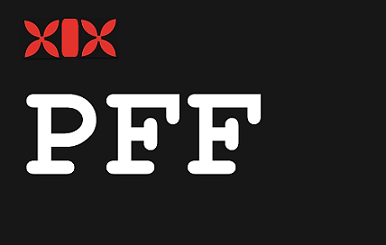Presidential directive to Nauru Broadcasting Service: all interviews to be approved first.
photo / pacmas
PFF | Rarotonga | For immediate release :
Government should allow Nauru Broadcasting Service to fully report politics leading up to this Saturday's general elections, says the Pacific Freedom Forum.
"An uninformed democracy is no kind of democracy at all," says PFF Chair Titi Gabi.
"How are voters supposed to make an informed decision on issues facing their country if they cannot access independent information to make their own judgment?"
Government last week reportedly issued a ban on any political coverage by the country's sole media, the state-owned Nauru television and radio station.
The ban was said to have been put in place by President Sprent Dabwido as part of a supposed "state of emergency" over economic conditions.
Finance minister Roland Kun resigned in protest, calling the media ban a "disgrace."
President Dabwido later said there was no ban but that he had issued a directive to media to put all interview requests through him first, to stop MPs attacking each other.
"Pushing media interviews through a presidential office seems neither free nor fair," says Gabi, speaking from Port Moresby.
"Where there is simply no other media, the burden is especially heavy upon government to allow free and open access to state media by all political parties."
PFF co-Chair Monica Miller says the Nauru directive recalls similar edicts imposed by democratically elected governments across the Pacific.
“All over the world, in fact, suppressing information has been proven again and again not to work.
“Whether we are talking tax havens used by the biggest companies fuelling global corruption or self-declared states of emergency in a micro-state like Nauru, the effect is the same – instability.”
“An economic crisis – global or local – is the very time people need more information, not less.”
Like other Pacific states, Nauru faces a future of ever evolving complexity, says Miller.
“To survive, let alone to compete, Nauru needs to retain its best minds, and attract back people it sends overseas for education.
“Nauru cannot hope to achieve either if it continues to deny citizens basic freedoms, and basic dignities.”
PFF is calling on the incoming government to review its media policies and put in place protections for freedom of speech, as guaranteed under the constitution, and by international agreement.
LINKS :
Nauru's media banned from reporting on politics during national election
http://www.radioaustralia.net.au/pacific/radio/program/pacific-beat/naurus-media-banned-from-reporting-on-politics-during-national-election/1138012
Nauru’s President denies banning media from speaking to politicians
http://www.rnzi.com/pages/news.php?op=read&id=76419
President Dabwido Declares State of Emergency
http://www.naurugov.nr/government-information-office/media-release/soe.aspx
Nauru makes media network from scratch (background)
http://www.theaustralian.com.au/media/nauru-makes-media-network-from-scratch/story-e6frg996-1225830274890
CONTACTS :
PFF Chair Titi Gabi | Freelance Journalist | Papua New Guinea | +67573143929 | titi.gabipng@gmail.com
PFF co-Chair Monica Miller | KHJ Radio | American Samoa | + 6842584197 | monica@khjradio.com
PFF coordinator Jason Brown | Avaiki Nius Agency | Samoa | +6857604412 | avaiki.nius@gmail.com
JOIN :
PFF Facebook
https://www.facebook.com/PacificFreedomForum
PFF Twitter
https://twitter.com/islandfreedoms
PFF Google
mediafreedom@googlegroups.com
Joining PFF is free, and open to all media practitioners in the Pacific Islands, and those interested in supporting freedoms of speech across the region.
ABOUT PFF :
The Pacific Freedom Forum is a regional and global online network of Pacific media colleagues, with the specific intent of raising awareness and advocacy of the right of Pacific people to enjoy freedom of expression and be served by a free and independent media. We believe in the critical and basic link between these freedoms, and the vision of democratic and participatory governance pledged by our leaders in their endorsement of the Pacific Plan and other commitments to good governance. In support of the above, our key focus is monitoring threats to media freedom and bringing issues of concern to the attention of the wider regional and international community.
..

hello from portugal!
ReplyDeletehttp://alma-de-deus.blogspot.pt/
: )